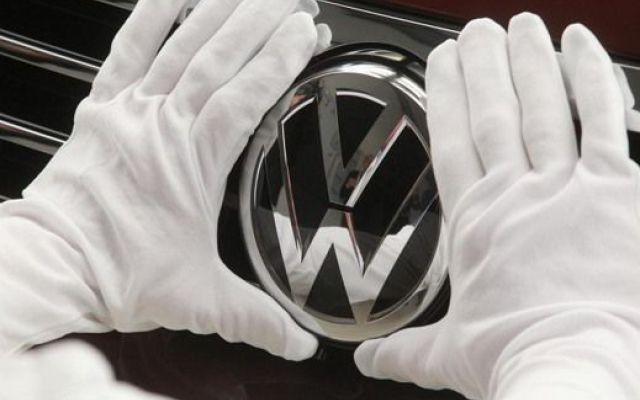Rudolf Diesel would be turning in his grave if he read the newspaper articles published in the wake of what (social) media simply termed the #Dieselgate. The manipulation of emission data by Volkswagen run counter to the very core beliefs of the man, whose technology allowed the company to become one of the biggest automobile producers in the world.
Even in Diesel’s native country Germany, only few people have ever heard about his book ‘Solidarismus: Natürliche wirtschaftliche Erlösung des Menschen’ (Solidarism: Natural Economic Salvation of Mankind) published in 1903. Solidarismus, for Diesel, signifies complete congruency of the interest of the individual with the interests of society as a whole. It is fair to assert that this worldview does not allow for the intentional deception of society by single companies.
Now of course Rudolf Diesel never worried about pollution and he most certainly never heard about global warming. In fact, it took us decades to acknowledge the negative effects of pollution on both the environment and human health and it took us even longer to react on it. What the Volkswagen scandal showed is that our current regulatory mechanisms, being in place precisely to curb the effects of pollution, do not work.
The actions of Volkswagen are not justifiable, yet it is worthwhile putting them into perspective. #Dieselgate is not only the failure of individual managers currently portrayed as scapegoats, but it also reveals deficiencies in the underlying regulatory system.
Already before the Volkswagen scandal erupted, the International Council on Clean Transportation (ICCT) found massive deviations when testing for vehicle emissions under more realistic conditions than currently applied in the EU. On average, the tested vehicles reached emission levels seven times higher than allowed. The difference between the emissions measured in laboratory and those under real driving conditions clearly reveals that what we deal with today is a systemic crisis.
The European Commission is expected to initiate new legislation on CO2 standards beyond 2020 by the end of this year. In light of the upcoming UN Climate Conference in Paris, EU policy-makers are keen to further reduce transport emissions to contribute to the achievement of the Union’s overall reduction targets.
The Volkswagen scandal will certainly reinforce this trend towards stricter regulation. However, policy-makers should not be ignorant of market development and technological requirements. When new CO2 standards below 95 g/km will be determined, decision-makers have to bear in mind that car makers cannot meet those standards simply by improving the efficiency of conventional engines.
Due to technological constraints, they will necessarily have to turn to alternative driving systems in order to cope with the regulatory requirements. A reasonable policy, thus, does not only force manufacturers to change their product structures but also supports the industry in bringing about a technological shift.
Although E-mobility only unleashes its full potential if the electricity used to power the car is generated through renewables, there is still common agreement that alternative driving systems such as the electric car represent the future of emission-free driving. But what has been done so far to support the development of E-mobility in Europe?
Today, the European infrastructure for electric cars is both underdeveloped, when compared to the US or Japan, and un-harmonised among Member States. When it comes to re-charging infrastructure and the production of cells and batteries we see US-Japanese leadership.
Already today, European automotive producers partially depend on the supply of batteries from Japan and the US. This dependency will most likely increase in the future as we see no comparable projects planned in Europe today.
Additionally, the charging infrastructure for electric cars varies considerably amongst European countries. While we see a dense network of charging stations in countries such as the Netherlands and Denmark, other countries like Germany struggle considerably in building up a public infrastructure that allows for market development.
One year ago, the EU adopted Directive 2014/94/EU, requiring Member States to build up an ‘appropriate’ number of charging stations for electric cars. The Directive, however, does not impose a binding target, leaving it up to the discretion of Member States to decide on the number of charging points. Clearly, the Directive cannot be conceived as a game changer as it does not incentivise any substantial investment in infrastructure.
Moreover, the EU does not make a deliberate choice for E-mobility. Following the mantra of technology neutrality, the EU requests Member States to develop a charging infrastructure not only for electric vehicles but also for liquid natural gas, compressed natural gas and hydrogen. Thus, Member States are effectively splitting up resources which could be used more efficiently if we made a deliberate choice for E-mobility.
Finally, coming back to the Volkswagen scandal, I believe that there are two essential conditions for a successful handling of the crisis:
- First, we need a combined effort of industry and politics. Violations of the law have to be punished accordingly, but one should not fall into the trap of blaming and fighting each other like it has been done in the past.
- Second, both car makers and policy-makers should be ready to embrace alternative driving systems and should not be afraid of taking a risk by investing in better infrastructure. In contrast, by investing in the future today we can turn the crisis into a new start for automotive Europe.
Image by Automobile Italia, taken from flickr




